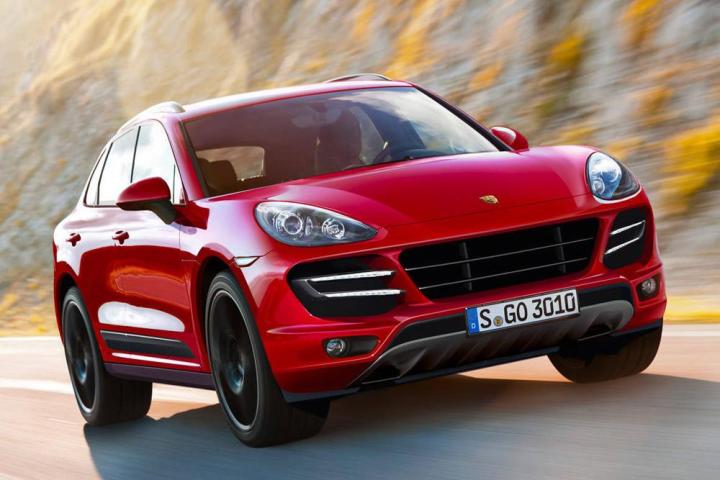
The darn thing isn’t even out yet and Porsche’s baby Cayenne, the diminutive Macan SUV, is already poised to be the brand’s best-selling model, Automotive News reports.
Speaking with Tim Urquhart, senior analyst at IHS Automotive, the Macan is slated to begin production in December and roll out to dealerships sometime in 2014.
The Macan will slot alongside Porsche’s soccer mom sensation, the popular Cayenne SUV. Exact details are scarce but reports suggest in its weakest form the Macan will be powered by turbocharged four-cylinder engine. V6 and diesel options are also said to be in the works, with the latter likely bound for Europe-only.
A definitive list of features has yet to be disclosed, but the Macan is expected to employ torque-sensing and torque-vectoring differentials, a seven-speed PDK dual-clutch transmission, as well as a sport-tuned suspension with an optional adjustable ride system similar to the larger Cayenne.
IHS predicts that sales of the brand new model will easily push Porsche over its annual sales target of 200,000, a goal the company hoped to achieve by 2018.
However, with the added sales of the Macan, Porsche’s sales goal could be reached a whopping four years ahead of schedule.
It’s all down to simple math really. IHS predicts Porsche will sell 63,000 Macans in 2014. Last year Porsche sold 143,096 cars. Should sales forecast continue along at the same rate, adding 63,000 Macan sales will easily push Porsche over the 200,000 unit threshold.
But while added sales volume is certainly good news for stockholders and Porsche’s parent company Volkswagen, there is worry that the Macan, which will likely become the automaker’s cheapest model, could harm the brand’s image.
Rumors point to a price below $49,500 when the car launches in Germany, which is lower than the Boxsters. To be fair though, the same concerns were raised about the Boxster when it was introduced back in 1996, and 17 odd years later the brand’s image seems to be doing just fine.
According to Urquhart, the Macan “is set to be a hugely profitable model,” due to its “extensive commonality with the Audi Q5.” That won’t, however, stop Porsche from charging a substantially larger price. By recycling the undercarriage of a vehicle that’s already fully developed, Porsche is due to rake in the profits.
Exactly how much you ask? Probably to the tune of about 10 to 20 percent, according to Urquhart.
While it might seem overpriced on paper, the introduction of a model even cheaper than the Boxster bodes well for Porsche fans. After all, without the increased sales of “non-traditional” models like Panamera and Cayenne, we may never have had this.
Editors' Recommendations
- Porsche Macan Electric: release date, specs, price, and more
- Ferdinand Porsche was 100 years ahead of his time with his 1900 hybrid


